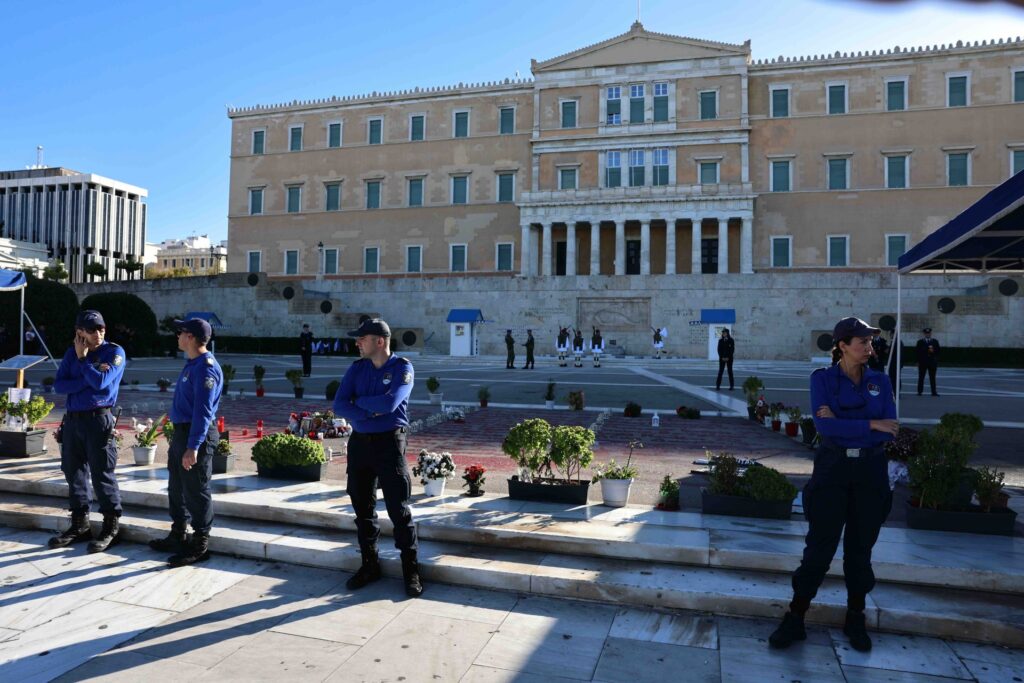Defense Minister Nikos Dendias made an announcement during his recent speech at the Pentagon’s new facade unveiling event. Seeking to end the heated discussions that had erupted, Mr. Dendias announced that the Ministry of National Defense is immediately proceeding with a tender for the care and enhancement of the Unknown Soldier Monument at Syntagma Square. This initiative is based on the provisions of the recent, much-discussed amendment that was voted in Parliament a few days ago and gives the Ministry of National Defense expanded responsibilities in matters relating to the maintenance and protection of the Unknown Soldier Monument.
According to sources familiar with the processes, the tender will focus on restoring damage to the Monument and its surrounding area, the marble and slabs surrounding the Monument, as well as improving lighting and access. The goal, as noted, is to restore the aesthetic balance of the space without altering its historical character.
Background and symbolism
The ministry’s planning for the Unknown Soldier Monument, one of the most emblematic sites in the capital, is not coincidental. As government sources emphasize, the initiative is connected to a broader effort to renew national symbols and the country’s image both domestically and internationally. In this context, the intervention at the “heart” of Athens, where official ceremonies honoring the fallen have been held for decades, takes on particular weight. However, there are also those who believe this move is part of the government’s strategy to carefully manage issues of memory and historical symbols, avoiding new sources of political confrontation, especially after the discussion caused by the inscription of the names of the Tempe victims.
Dendias’ statements and the message
In his recent speech at the Pentagon, Mr. Dendias characterized the enhanced role of the Armed Forces in caring for the Monument area as “given,” emphasizing that the goal is to promote it as a point of National Unity and common Historical Reference. “The Unknown Soldier Monument is the absolute symbol of our collective memory and respect for the Unknown Dead of Greece’s wars,” he noted characteristically, adding in reference to public buildings generally that “we must overcome the culture of the static and fragmentary.”
Speaking about public buildings, prompted by the Pentagon facade renovation, the Defense Minister emphasized the need “to intervene where required, in a way that makes interventions function as symbols understandable to every Greek man and woman.” “These changes must express the agenda of ambitious modernization that the times demand,” he stressed, sending the message that modernization cannot be disconnected from historical continuity and national cohesion. “Along with change, we must also maintain our national unity,” said Mr. Dendias, adding meaningfully: “The world around us has definitively changed – and we must change too.”
Goal: enhancement without alteration
The announcement of the tender for the Unknown Soldier Monument is expected to be translated into specific technical criteria in the coming weeks. The intention, according to the same sources, is to achieve a result that combines respect for the Monument’s historical character with a modern aesthetic approach. After the Pentagon, therefore, Nikos Dendias shows he is putting the “most sacred” point of Athens at the center of attention, attempting to renew it in a way that symbolizes the timeless continuity of the Greek state – from past struggles to present challenges.




